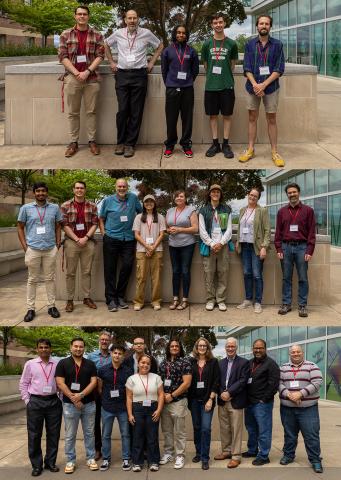Summer Engineering Research for Community College Students (SERCCS) selects 2 students from (2-year) community colleges for eight-week internships in accelerator and x-ray sciences research, during which students also attend/lead formal seminars, tour research facilities, and enjoy social and recreational events.
The SUNRiSE Program (Summer Undergraduate Research in Science and Engineering) and PREM (Partnerships for Research and Education in Materials), are closely aligned with SERCCS, and are available for pre-selected undergraduate students from four-year degree granting institutions.
SUNRISE & PREM
The SUNRiSE program invites students from Fort Lewis College (FLC) to participate in a summer research experience at CHESS that provides them with the chance to experience science and engineering outside the classroom. Coupled with FLC’s special commitment to educating Native American populations, the CHESS/FLC partnership has become an effective mechanism for broadening the participation of underrepresented groups in top-notch research experiences. Students interested in gaining hands-on experience in science, engineering and technology spend their summer conducting research at our state-of-the-art research facility on topics like: residual stress, fatigue, x-ray optics and detectors.
Closely aligned with the SUNRiSE program, Partnerships for Research and Education in Materials (PREM) summer students are visiting CHESS from the University of Puerto Rico. Students work directly on research projects related to x-ray and accelerator technologies, alongside collaborating faculty from their home institution and a CHESS scientist or graduate student mentor.
In the summer of 2024, the SUNRiSE program has three students and the PREM program has four students.
SERCCS
SERCCS is open to New York State community college students interested in a career in science, engineering, and technology. This summer, two SERCCS students are working on projects under the mentorship of CHEXS researchers ranging from development of flyscanning for SPEC macro motors to a GUI for automated mechanical testing with in-situ x-ray data collection.
Students in all four programs are diving headfirst into their research projects while simultaneously enjoying additional academic experiences such as weekly science communications seminars, CLASSE coffee hours, and in-depth tours of the synchrotron facilities.
CHESS's summer programs will wrap up in the second week of August, culminating with the students presenting posters on their research.
